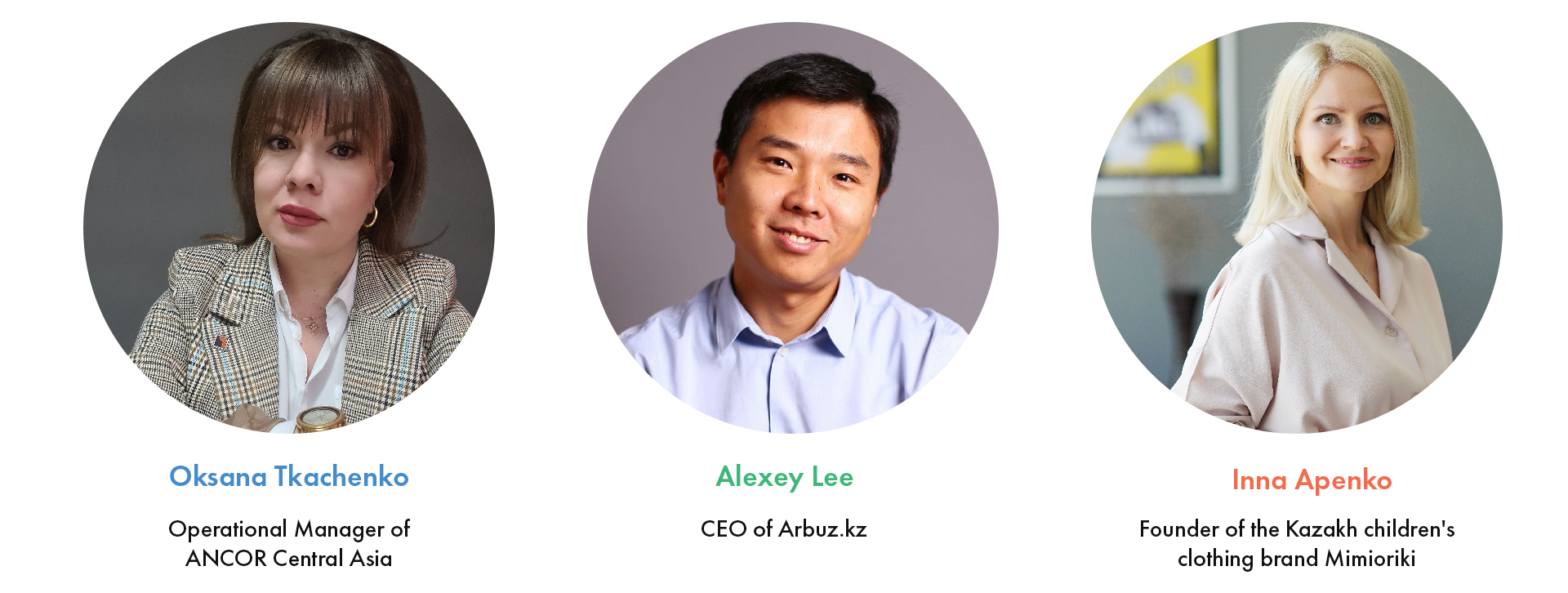How has the coronavirus pandemic changed the job market in Kazakhstan? Experts share their opinions
January 27th, 2021
What’s happening in today’s job market in Kazakhstan?
Oksana Tkachenko:
Businesspeople today are asking themselves how their business should adapt to stay in demand. There’s no time left to sit and analyze the situation, because the most creative people have already started taking up new ideas and new solutions. Everybody has a chance to stay ahead of the game, especially freelancers and professionals who are nimble enough to go with the flow.
In the Kazakh labor market, who’s been most affected by the pandemic?
Oksana Tkachenko:
With the situation we’re in, staff reductions on some scale are simply inevitable. But as of now, only 12% of respondents to our survey said they were considering layoffs. That means that if layoffs do indeed go forward, then they’ll mostly affect employees whose responsibilities can be easily redistributed without negative consequences to the overall business.
Inna Apenko:
We didn’t have to let anybody go and no one lost their job, either on the production line or in retail. The only consequence was that in April we had to cut our management team’s salaries by 30%, but thankfully our employees were incredibly understanding about the situation. By June, we were back to the usual payroll, and now we’re already back to working as usual.
Who was able to make a pivot during the pandemic and how can others follow their example?
Alexey Lee:
Inna Apenko:
After looking at how the market was changing, we launched a new line called Family Sport. We were able to survive the quarantine without suffering major losses because people generally spend more for adult apparel, and customers were buying items that were better suited for spending time at home or going out with their families. Now, as a result of the quarantine, this product line makes up 40% of our sales. That doesn’t mean we grew overall by 40% during quarantine, because there was also a dramatic fall in sales of children's apparel, but we managed to find a new niche for ourselves that has met a growing demand.
We’d expected that the market for online shopping would develop over the next three to five years, but the pandemic brought all our sales online in just two weeks. We started actively selling our products on Instagram, of course, but we also turned to online marketplaces, and especially Kaspi.kz, which has become a major competitor for all brick-and-mortar retail locations in the country in terms of their rate of growth in sales. We started working with the Russian site Wildberries, too. The future is definitely online.
How has the rise in working remotely changed your business?
Alexey Lee:
Inna Apenko:
We cut down on office space because after we shifted to remote work, most of our management team agreed that they didn’t want to come back to the office. We still have some meetings in person, but a lot of problems can be solved online instead. Personally I’m a little more used to it, because I split my time between two countries - my husband’s from Moscow, while my business and my family are in Almaty. Several years back I tried working remotely from Moscow and it was really a challenge, because everyone in Kazakhstan was so used to meeting in person. In a way, I'm glad that the quarantine taught everyone that you can work anywhere while being just as efficient, whether it's from your apartment or from another country. Now I’m in Moscow, but I’m still working, and it’s perfectly easy to stay in touch with my coworkers, my partners, and even with officials from the government.
What kind of professionals are most sought after in Kazakhstan’s job market today?
Alexey Lee:
Then, in addition to openings that involve physical labor, we have a constant demand for the kind of engineers and managers who can quickly adapt to new conditions, yet absorb traditional know-how at the same time.
Inna Apenko:
What kind of professionals will be in demand in the near future?
Oksana Tkachenko:
Alexey Lee:
Inna Apenko:
What do you think are “the jobs of the future”?
Alexey Lee:
As for skills, if I had to choose between an employee with a good education but not much experience, and someone who has a lot of experience but not much education, I’d choose someone else entirely - somebody with both a good education and plenty of experience.
For roles that involve mental labor, these are the most important assets:
Where do you think the Kazakh job market is headed in the near future?
Oksana Tkachenko:
Alexey Lee:
Photographs supplied by the featured experts.
Данный проект реализуется с помощью гранта от Посольства США в Нур-Султане, Казахстан. Мнения, выраженные в материалах, принадлежат их авторам и не обязательно отражают точку зрения Правительства США или Дипломатической Миссии США в Казахстане.




